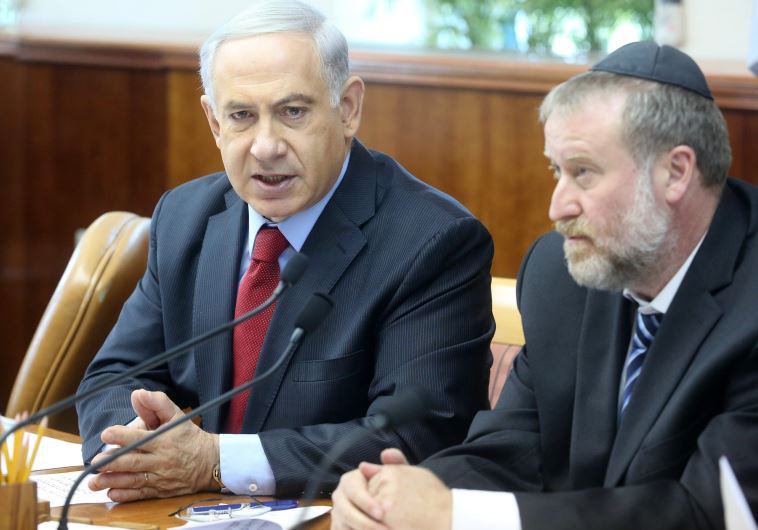A-G selection panel explains giving cabinet secretary a pass on Harpaz Affair
NGO Citizens for Good Governance and Social and Legal Justice petitions to block Avichai Mandelblit’s appointment as attorney-general.
 Avichai Mandelblit and Netanyahu(photo credit: MARC ISRAEL SELLEM/THE JERUSALEM POST)
Avichai Mandelblit and Netanyahu(photo credit: MARC ISRAEL SELLEM/THE JERUSALEM POST)